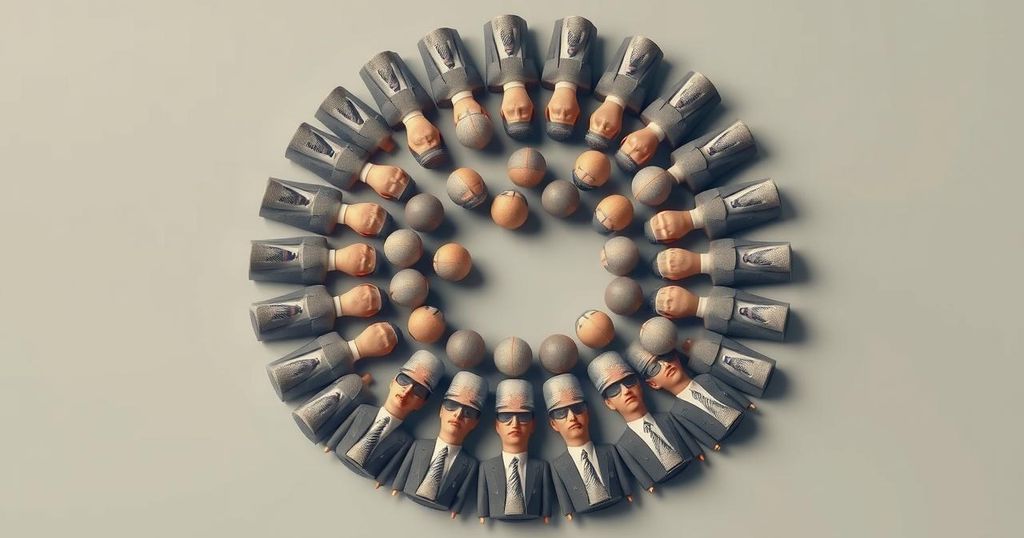Marcel Niat Njifenji and Cavaye Yeguie Djibril have been re-elected to lead Cameroon’s legislative bodies, reaffirming a stagnant political system dominated by the CPDM. Their tenure reflects a lack of genuine democratic competition and meaningful progress in governance, with opposition parties largely voicing their discontent silently. As the upcoming presidential election looms, the trajectory of Cameroon’s political landscape suggests a continuation of the status quo.
In a predictable turn of events, Marcel Niat Njifenji and Cavaye Yeguie Djibril have been re-elected to their positions as heads of Cameroon’s Senate and National Assembly, respectively. Despite their ages—Niat at 90 and Djibril at 84—their continual presence symbolizes the entrenched political landscape of Cameroon, where leadership rarely changes. Djibril has led the National Assembly since 1992, while Niat has presided over the Senate since its inception in 2013, highlighting a political environment where longevity overshadows merit.
The Cameroon People’s Democratic Movement (CPDM/RDPC), which has held power for over four decades, stages these elections with surgical precision. Parliament sessions are merely occasions for members to affirm decisions made prior to the voting process, rendering competition moot. This orchestrated display deprives opposition lawmakers of any genuine influence, transforming democratic processes into performative rituals.
Cavaye Yeguie Djibril frequently embarks on medical trips abroad, often missing inaction while still managing to hold his post. His tenure has been marked by a significant lack of legislative progress, with the Assembly acting merely as a platform for President Paul Biya’s directives. Similarly, Niat’s role is primarily ceremonial, facilitating a Senate that nominally exists but offers little beyond a refuge for former CPDM officials.
Dissatisfaction among opposition parties exists, albeit subtly expressed. Open dissent risks accusations of undermining state stability, leaving political discourse in a state of stagnation. As Cameroon approaches the upcoming presidential election in October 2025, the political scenario remains unchanged and resistant to transformation, as it has been observed repeatedly that power in Cameroon is perpetuated rather than contested.
The recent re-elections of Marcel Niat Njifenji and Cavaye Yeguie Djibril epitomize the stagnation within Cameroon’s political system, characterized by a lack of viable competition and meaningful legislative progress. The dominance of the CPDM/RDPC facilitates a political landscape that is resistant to change, leaving opposition voices marginalized. As the date for the next presidential election approaches, the entrenched leadership suggests that the cycle of political repetition will once again prevail, underscoring the inherited nature of authority in Cameroon.
Original Source: www.cameroon-concord.com




